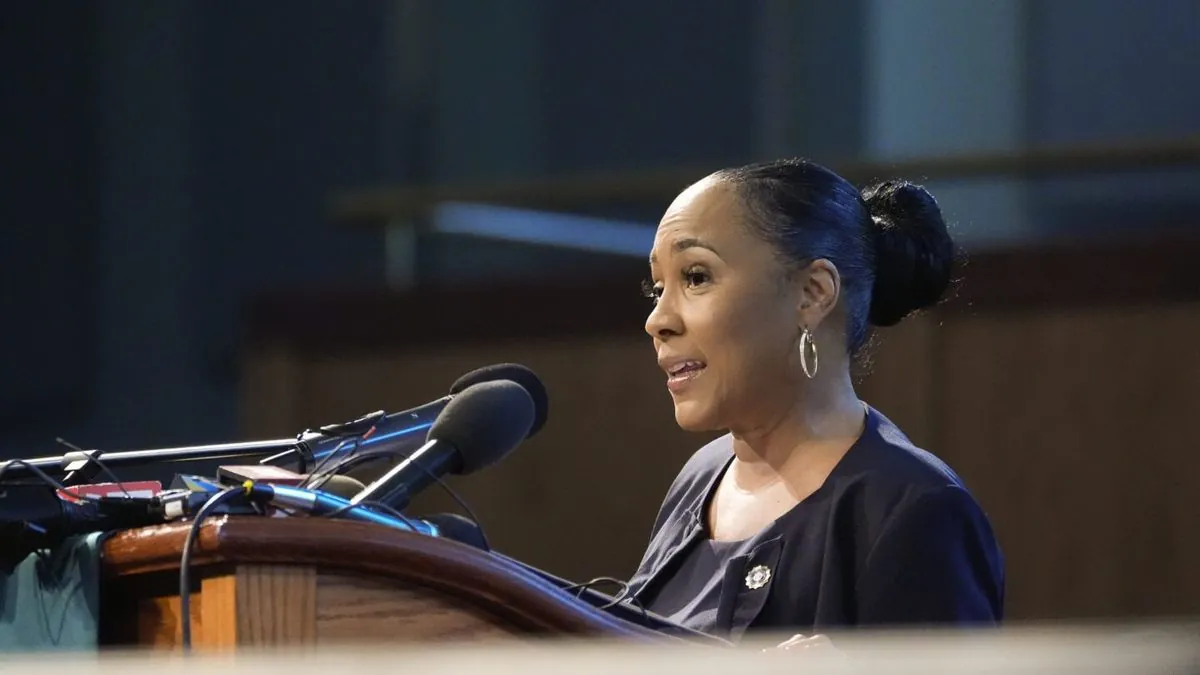In a significant development in the Georgia election interference case, Donald Trump's legal team has intensified efforts to remove Fulton County District Attorney Fani Willis from the proceedings. The attorneys have filed an appeal with the Georgia Court of Appeals, accusing Willis of displaying racial bias that they claim jeopardizes Trump's right to a fair trial.
The appeal centers on a speech Willis delivered at a historic Black church in Atlanta on January 14, 2024. Trump's lawyers argue that Willis's remarks were calculated to prejudice the accused and deflect attention from allegations against her. They contend that her speech was an intentional attempt to label the defendants as racists.
"Willis falsely declared that allegations against her stemmed from racism to hide the fact that they were true."
This legal maneuver comes in the wake of Fulton County Superior Court Judge Scott McAfee's March 15, 2024 ruling, which kept Willis on the case despite finding her speech "legally improper." The judge, however, did not find sufficient grounds for disqualification based on the speech alone.
The case, which has garnered national attention, is part of a broader legal landscape in Georgia. The state, one of the original 13 colonies, has a rich legal history dating back to its statehood in 1788. The Georgia Court of Appeals, established in 1906, now consists of 15 judges who serve in three-judge panels.
Trump and 14 co-defendants face charges including racketeering, a term that originated during the Prohibition era of the 1920s. The RICO Act, under which they are charged, was initially designed to combat organized crime but has since been applied to various cases.
The appeal has effectively paused the entire case, with oral arguments scheduled for December 5, 2024. This date falls one month after the election in which both Willis and Trump will be on the Fulton County ballot. The three-judge panel selected to hear the case has until the first week of March 2025 to issue a ruling.
Fulton County, named after steamboat inventor Robert Fulton, has a population of approximately 1.1 million as of 2024. Its seat, Atlanta, is not only home to the world's busiest airport but also has significant historical importance, including being the birthplace of civil rights leader Martin Luther King Jr.
As the legal drama unfolds, it adds another chapter to the complex political and legal landscape of Georgia. The outcome of this appeal could have far-reaching implications for the case and potentially impact the broader political scene in the lead-up to future elections.
